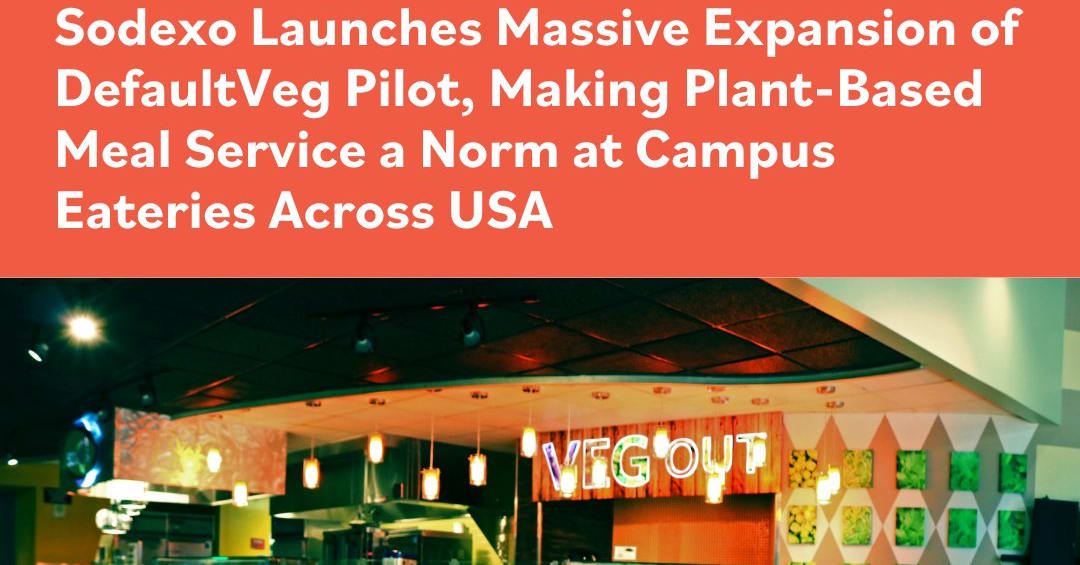Better Food Foundation is excited to finally be able to share that Sodexo has confirmed that they’ve rolled out a suite of plant-based changes in the standard menu that is used in almost all of their resident dining halls (approximately 400 universities!). These changes include a meal station that uses plant-based nudges in their signage and meal presentations, as well as a fully plant-based station. This is the largest-scale implementation of plant-based nudges in universities that we’ve ever seen. While we don’t have data yet about how these nudges have impacted student meal choices so far, our own estimation is that if 400 schools were to implement strong plant-based defaults in ⅓ of their cafeteria stations, it would result in up to 45 million meals being flipped from animal-based to plant-based by the end of the academic year!
Several groups have played a role in achieving this truly groundbreaking step forward in university dining, but one of the catalysts was a study conducted with Sodexo which tested plant-based defaults in three universities in 2022. The results of that study were recently published in a paper by Boston College researchers in the peer-reviewed Journal of Environmental Psychology showing the powerful impacts of plant-based defaults in university dining halls. The article reports on the pilot study conducted by Food for Climate League, in partnership with the Better Food Foundation, Sodexo, and Boston College that we released last fall, which led directly to Sodexo’s groundbreaking implementation across its many dining halls. You can find an Executive Summary on our website with highlights from the study—notably, the two schools that implemented the strategy consistently found a jump in plant-based orders from 30.8 to 81.5 percent.
One thing to note is that, while the study helped to persuade Sodexo to incorporate plant-based nudges into their plan for achieving their public 50% plant-based pledge, the changes that Sodexo has rolled out in its new national menu do not go as far in nudging diners toward plant-based foods as the ones used during the study itself, nor did the study test all of the plant-based nudges that could be used in dining halls to maximally reduce animal products.
There’s room for improvement. We’re excited to partner with many of you to help Sodexo go even further and to inspire other companies and schools to adopt changes that not only increase access to plant-based foods, but normalize and encourage plant-based dining, shaping the expectations of an entire generation of college graduates. To drive this change even further, right now we’re recruiting college students and partnering with groups that do campus activism.
We want to give special thanks to Ilana Braverman, who contributed considerable expertise to making the Sodexo pilot a success while she was on staff at BFF (Ilana is now Co-Founder of Greener by Default), and to staff at HSUS for its campaign leading to Sodexo’s pledge, which was a catalyst for making this pilot project possible.
If you’re interested in leveraging this research for your own institutional or corporate outreach strategies or want to team up with our student ambassador program, we’d love to chat and answer any questions—feel free to reach out!



Using metal detectors in agriculture, as promoted by GoldXtra, ensures that the agriculture industry can yield safer, purer, and better-quality products. These tools are not just the treasures of history enthusiasts but have proven to be genuine assets in modern farming.